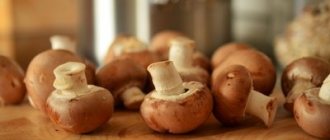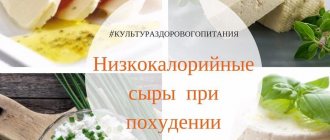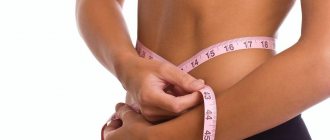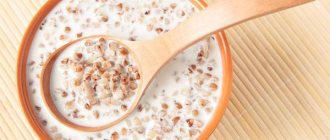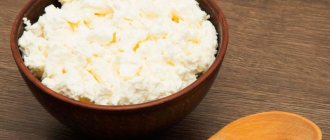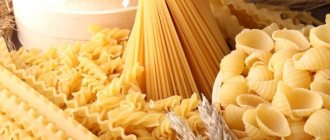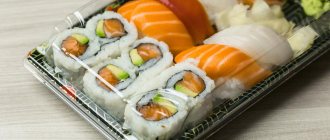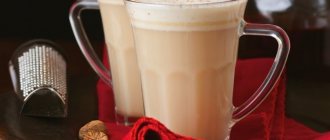Those who want to lose weight without unpleasant dietary restrictions often underestimate the harm of a protein diet to the body. Many people like this method of fighting excess weight. After all, there is no need to give up tasty and satisfying meat. The protein diet is especially popular among active young men who are having a hard time with the lack of meat dishes on the dinner table. However, the damage caused to health due to the abuse of protein foods can cancel out the benefits of losing weight. Instead of the expected vigor and beauty of a toned body, a person may acquire a bunch of unpleasant diseases, a dejected and haggard appearance. What are the dangers of a protein diet?
The effect of excess protein on the body
The protein diet is the basis of the popular Dukan diet and the Kremlin diet. It helps to significantly reduce body weight by eliminating sugar and simple carbohydrates, limiting the consumption of saturated fats, and reducing the caloric content of the daily diet. At the same time, the consumption of protein foods increases significantly.
Proteins (proteins) are vital for humans. They make up the bulk of the dense substances of muscles, supporting tissues and protective formations (hair, nails). They make up immune bodies that protect the body from infections. The body does not know how to accumulate proteins, so a person must constantly eat protein foods.
But for the normal functioning of all systems and organs, fats and carbohydrates are no less necessary. Carbohydrates are the main source of energy necessary for the functioning of all organs, cell growth and division. The functioning of the brain, respiratory system and testosterone production in men depend on saturated fats.
Without receiving vital substances from food, the body faces a deficiency. Due to lack of nutrients, he finds himself in an extreme situation. Trying to replenish missing carbohydrates, a person first uses up their own reserves (glycogen), accumulated in the muscles and liver. Then the stored fat reserves are used up.
What can be the consequences of a protein diet?
Kidney diseases
The Dukan protein diet can cause kidney disease.
strong>Increased consumption of protein foods makes them work harder.
The organs are responsible for removing protein breakdown products from the body. A large amount of proteins leads to acidification of urine and increased excretion of oxalate salts. With this mode of operation, even healthy people develop kidney stones. Moreover, one of the most unpleasant deposits is oxalate stones. They have spike-like projections. Moving along the ureter, stones injure its walls, causing unbearable pain. This overload does not go unnoticed. Kidney function may be permanently impaired. If excessive amounts of proteins enter the body for a long time, tubulopathy may develop. This is a condition in which the process of transporting all the nutrients necessary for kidney function is pathologically altered. As a result, stones begin to form even with a balanced diet.
If a protein diet does not cause the formation of large stones, salts in the urine provoke inflammatory diseases of the urinary tract.
High cholesterol
The harm of protein diets is due to an increase in bad cholesterol in the blood and bile. This is caused by eating excessive amounts of protein foods. Scientists have found that a high-protein diet increases the risk of developing cardiovascular diseases such as heart attack and stroke by 28%. Due to increased cholesterol levels, the risk of developing atherosclerosis increases, against the background of which signs of coronary heart disease, cerebrovascular accidents and blood circulation in the extremities appear. Negative consequences are observed even due to a short-term diet.
High levels of cholesterol in bile lead to the formation and enlargement of gallstones. An organ clogged with stones has to be removed.
Menu (Power Mode)
It’s not difficult to create an optimal diet for 10 days, using the following nutritional plan as a basis:
- breakfast - protein dish and vegetables;
- second breakfast - only vegetables;
- lunch - protein and vegetables;
- afternoon snack - protein dish + vegetables;
- dinner - protein dish + vegetables.
As you can see, the result is a high-protein diet, since protein is present in almost every meal. By alternating protein dishes at will, you can provide a fairly varied diet. Avoid salt, and for salad dressings use olive or flaxseed oil, lemon juice, various herbal seasonings, and balsamic vinegar.
Below is a protein diet - a menu for 10 days. It is suitable for women with moderate physical activity. For professional athletes and men, the amount of protein food increases.
| Breakfast |
|
| Lunch |
|
| Dinner |
|
| Afternoon snack |
|
| Dinner |
|
| Breakfast |
|
| Lunch |
|
| Dinner |
|
| Afternoon snack |
|
| Dinner |
|
| Breakfast |
|
| Lunch |
|
| Dinner |
|
| Afternoon snack |
|
| Dinner |
|
| Breakfast |
|
| Lunch |
|
| Dinner |
|
| Afternoon snack |
|
| Dinner |
|
| Breakfast |
|
| Lunch |
|
| Dinner |
|
| Afternoon snack |
|
| Dinner |
|
| Breakfast |
|
| Lunch |
|
| Dinner |
|
| Afternoon snack |
|
| Dinner |
|
| Breakfast |
|
| Lunch |
|
| Dinner |
|
| Afternoon snack |
|
| Dinner |
|
| Breakfast |
|
| Lunch |
|
| Dinner |
|
| Afternoon snack |
|
| Dinner |
|
| Breakfast |
|
| Lunch |
|
| Dinner |
|
| Afternoon snack |
|
| Dinner |
|
| Breakfast |
|
| Lunch |
|
| Dinner |
|
| Afternoon snack |
|
| Dinner |
|
Intestinal problems
Another target of a protein diet is the human intestine.
Fiber-poor foods prescribed by the diet cause disruptions in the gastrointestinal tract. A person begins to suffer from constipation. Long-term constipation can cause the development or exacerbation of hemorrhoids. Deterioration of intestinal function leads to the fact that food is poorly digested and absorbed. It literally rots in the intestines, covering its walls. The person loses appetite, feels nauseated and has bad breath. Malfunctions of the gastrointestinal tract cause intoxication of the body.
The danger of a protein diet also lies in the loss of fluid that accompanies the process of replacing carbohydrates in the body. Dehydration is an additional stress for a person and poses a danger to his health. One reaction may be a change in hormonal balance and the release of hormones that cause fluid retention. Adapting to extreme conditions, systems and organs subsequently refuse to accept other food. After finishing the diet, a person suffers from edema for no apparent reason. Is a protein diet harmful to other organs?
Principles of nutrition
The technique was developed by American cardiologist Robert Atkins, and French physician Pierre Dukan also offered his interpretation. The essence of the protein diet is to adhere to the following nutritional rules:
- 60% of the daily diet consists of protein foods;
- simple carbohydrates are completely excluded from the menu;
- Vegetable fats are allowed in small quantities;
- For variety, dishes are supplemented with fruits and vegetables in moderate quantities.
Food is taken in small portions every 3-3.5 hours. Particular attention is paid to the quality of products - all semi-finished products, sausages and smoked meats are prohibited. Favorites include lean meat, fish and poultry, and crispy bran.
Other effects of a protein diet
When protein is broken down into amino acids, ammonia is produced in the body. It has a negative effect on the nervous system. When consuming large amounts of protein, the amount of toxic ammonia increases to critical levels, causing increased nervous excitability.
A protein diet forces the liver to work in extreme mode. Metabolic disorders threaten the emergence of a predisposition to diabetes. The lack of essential polyunsaturated fatty acids makes blood vessels fragile.
Additional calcium is needed to process excess protein. It is washed out of the bones and they become brittle. Over time, osteoporosis may develop. Brain function deteriorates, a person cannot concentrate, and constantly forgets everything.
A protein diet is especially harmful for women. They may have problems conceiving. Decreased fertility is associated with the accumulation of protein breakdown products in the genitals, which interfere with fertilization.
Excess proteins can cause muscle cramps. Lack of the required amount of vitamins in the diet leads to decreased immunity and vitamin deficiencies. A protein diet depletes the body's resources.
Studies have revealed an increase in N-nitroso compounds in people following protein diets. These substances have been linked to the development of cancer.
Is a protein diet harmful?
A diet in which proteins predominate cannot be called balanced - hence the benefits and harms of the Dukan diet. By minimizing the consumption of carbohydrates and fats, we deprive ourselves of vital
minerals and vitamins.
Why is a protein diet harmful to the body?
- The kidneys experience increased stress due to rapid fluid loss. For the same reason, staying on a diet for a long time is fraught with dehydration.
- Digestive problems and constipation caused by a deficiency of vegetables and fruits. The body lacks fiber and plant fibers.
- Active protein processing is accompanied by intense leaching of calcium. Bones and nails become brittle, hair becomes dull, and the skin loses its elasticity.
- Fatigue, poor sleep, decreased performance and mood as a result of dehydration.
A protein diet for women is dangerous due to hormonal imbalance. Changes in the usual diet cause a restructuring of metabolic processes and disruptions in the functioning of the endocrine system. The functions of the ovaries are impaired, which leads to inflammation of the appendages and secondary infertility.
General deterioration in health and appearance
Carbohydrates regularly supplied to the body not only provide it with energy. They give a person a feeling of satiety and satisfaction, lift his spirits and provide a surge of strength. Due to a lack of carbohydrates, your mood deteriorates, you feel a loss of strength and weakness. Due to lack of fat, the skin becomes dull and flabby. Nails and hair lose shine and break, vision deteriorates.
In conditions of limited fat consumption, the body goes into emergency mode and forms an emergency reserve, which is almost impossible to get rid of. In such cases, losing weight leads to the exact opposite effect.
Due to a chronic lack of complex carbohydrates in the form of cereal porridges, starchy foods and wholemeal bread, a person has an unbearable desire to eat large amounts of sweets. Barely waiting for the end of the exhausting diet, the thinner pounces on baked goods, cakes and sweets, quickly restoring the lost fat reserves.
Benefits of a Protein Diet
The benefits and harms of a protein diet depend on how it is used. This is an effective way to lose weight in a short period of time. But it is contraindicated for people with diseases of the gastrointestinal tract, suffering from diabetes, diseases of the cardiovascular system and kidneys. Those who have chronic diseases should not risk their health. This method of losing weight is not recommended for pregnant and lactating women, as well as the elderly and children.
What then are the benefits of a protein diet? This method of losing weight is often recommended for athletes. A protein diet is suitable for healthy, strong people; its benefits will be undoubted. If you decide to go on a protein diet, it is advisable to consult your doctor. He will tell you how to avoid excessive stress on the body and achieve maximum effectiveness of the method with minimal risks to health.
Is it possible to eat buckwheat on a protein diet? Filling the refrigerator
What can you eat on a protein diet? The diet on a protein diet is quite monotonous, although the list of allowed foods is quite long. The most important criterion for a product is its high protein content. Protein diet - what can you eat every day?
- Meat – beef, veal, poultry, rabbit, horse meat. Do not buy meat with a high fat content - lamb, pork.
- By-products – kidneys, ventricles, tongue.
- Fish – lean, sea or river fish.
- Seafood - shrimp.
- Low-fat dairy products. Cottage cheese, milk kefir, tofu cheese. Sources of protein and calcium, which are essential for bones.
- Eggs. An incredible source of pure protein. You can use both the whites and yolks of chicken or quail eggs.
- Tea in any form.
- Oat bran.
This is the basic list of diet foods that you can eat. But you won’t be satisfied with meat and fish alone. What can you eat on a protein diet, besides staple foods? You need a supplement of vegetables, herbs, and legumes. This can be zucchini, cabbage, tomatoes, fresh cucumbers, lettuce and celery. Beans, green peas, lentils, soybeans, sweet peppers, beets and carrots. Raw vegetables and fruits are an important part of the menu; they maintain the balance of vitamins and nutrients. Tomatoes contain lycopene, a substance that helps burn fat. It is highly advisable to eat them.
Vegetables can be stewed, steamed, baked or eaten raw. If you're making a salad, a dressing made from lemon juice or olive oil is ideal. Fruits can be sweet and sour: green apples, oranges, grapefruit, pomegranate. Their quantity is limited; eating one fruit per day is an acceptable limit. Don't forget about cereals - buckwheat, rice, oatmeal. We cook only lean porridges - in water, without oil, sugar, salt. Eat no more than 2 times a week. Which products are best limited to a minimum? You can eat lard in small quantities, lean ham, dry sausage. Increase the amount of liquid - clean drinking water, herbal tea.
A protein diet is maintained for at least 14 days. Eat in small portions at least five times a day. Half an hour before meals, drink 250 ml of water. We combine a dietary diet with strength training. A protein day is unthinkable without physical activity.
For what? The goal of the diet is to burn fat while maintaining muscle definition. If the body is starving, it uses its reserves not only of fat, but also of muscle tissue. To prevent this from happening, you need to pump up your muscles so that only the hated fat goes away. The body will acquire beautiful and elastic shapes. In addition, physical activity prevents the processing of protein into adipose tissue. (if you use it a lot and don’t move, it will also begin to be deposited in problem areas).
